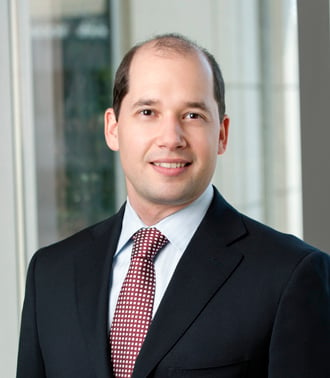President Trump's Mexico City Policy: An Expansion of Restrictions on Foreign Aid
On January 23, 2017, President Trump announced broad new restrictions on US foreign assistance for nongovernmental organizations (NGOs) that "perform or actively promote abortion as a method of family planning." To be eligible for US foreign health assistance, foreign NGOs are required to certify that they will not perform or actively promote abortion as a method of family planning using funds from any source—even non-US government funds from a segregated account. The restrictions, which are more sweeping than those imposed by prior Republican administrations, have broad ramifications for US foreign assistance and raise important and difficult issues. Restrictions on US funds being used for family planning are known for historic reasons as the "Mexico City Policy" and have been described by critics as a "global gag rule," since providing information about the availability of legal abortions is among the actions considered "active promotion" of abortion. This Advisory explains key aspects of the Trump Administration's policy.
How is President Trump's Mexico City Policy different than previous analogous efforts?
The Mexico City Policy, in its earlier forms, originally applied only to US Agency for International Development (USAID) assistance for family planning. The policy withheld USAID assistance even if a foreign NGO used non-US government funds to perform or promote abortions as a method of family planning. President George W. Bush expanded the scope of the policy to include State Department "assistance for voluntary population planning," but excluded the President's Emergency Plan for HIV/AIDS Relief (PEPFAR) and funding for "multilateral organizations that are associations of governments."1 Under the Trump Administration, the policy has expanded from State Department funding for family planning to "global health assistance furnished by all departments or agencies."2 Whereas President Bush's Mexico City Policy applied to approximately $600 million in aid, President Trump's policy applies to more than $8.8 billion in aid. In addition to family planning, the Mexico City Policy now applies to funding for programs to treat tuberculosis, malaria, nutrition, infectious diseases, and HIV (including PEPFAR). Foreign NGOs that offer comprehensive health services will not be eligible to receive US assistance unless they agree not to provide abortion counseling—even if abortion counseling represents a minor fraction of the services they provide.
Which organizations are affected by the new policy?
The Mexico City Policy applies to foreign NGOs and any US NGO providing health assistance to a foreign NGO under a subaward. A foreign NGO is defined as a for-profit or not-for-profit nongovernmental organization "not organized under the laws of the United States, any State of the United States, the District of Columbia, or the Commonwealth of Puerto Rico, or any territory or possession of the United States.'3 The policy does not apply to the activities of US NGOs operating overseas because of constitutional protections.4
The Mexico City Policy explicitly exempts funding to foreign governments and parastatals, except that any funds transferred must be kept in a segregated account to ensure that that no US government funds are used for abortions.5
What activities are prohibited under the new policy?
Under the Trump Administration's Mexico City Policy, foreign NGOs receiving grants or participating in cooperative agreements must agree not to perform or actively promote abortion as a method of family planning. USAID, which first implemented the policy, has defined several key terms.
- Abortions as a method of family planning: abortions for the purpose of spacing births, including abortions performed for the physical or mental health of the mother and abortions performed for fetal abnormalities.
- Performing abortions: operating a facility where abortions are provided as a method of family planning.
- Actively promoting abortion: committing resources—financial or otherwise—in a substantial or continuing effort to increase the availability or use of abortion. This includes providing advice or information regarding the benefits or availability of abortion as a method of family planning.6
Additionally, foreign NGOs must agree not to lobby a foreign government to legalize or maintain the legality of abortion or conduct a public information campaign regarding the benefits or availability of abortion as a method of family planning.7
Actions prohibited by the new Mexico City Policy that are performed by an individual associated with an NGO are not attributable to the NGO as long as several conditions are met: (i) the individual is not on duty or on the organization's premises, (ii) the organization does not endorse the activity or provide financial support for the action, and (iii) the organization takes reasonable steps to ensure that the individual does not improperly represent that he or she is acting on behalf of the organization.8
What abortion-related activities are allowed under the new policy?
Under the Trump Administration's Mexico City Policy, an abortion is not considered a "method of family planning" if it is performed when the life of the mother would be endangered if the fetus were carried to term or if the abortion is performed following rape or incest. Similarly, it is not "active promotion" to refer a woman for an abortion after rape or incest, or if the life of the mother would be endangered by carrying the fetus to term. Foreign NGOs may also "passively respond" to a question about where a safe, legal abortion may be obtained if:
- a woman who is already pregnant asks the question,
- she clearly states that she has already decided to have a legal abortion, and
- the healthcare provider reasonably believes that the ethics of the medical profession in the host country requires a response regarding where an abortion may be obtained legally.9
Finally, the Mexico City Policy allows foreign NGOs to treat injuries or illnesses caused by legal or illegal abortions.10
What must US NGOs do to comply with the new Mexico City Policy?
The USAID provisions implementing the Mexico City Policy prohibit US NGOs from transferring funds from a foreign health assistance award to a foreign NGO "subrecipient" unless the subrecipient agrees that it will not perform or actively promote abortion as a method of family planning. US NGOs are also prohibited from providing a foreign NGO with goods or services purchased under a foreign health assistance award without such an agreement by the subrecipient. Foreign NGO subrecipients may not make further transfers to foreign NGOs that perform or actively promote abortion as a method of family planning.11
An NGO may be liable for the refund of an award used by a subrecipient to perform or actively promote abortions as a method of family planning. An NGO is liable if it knowingly provides assistance to a subrecipient that performs or actively promotes abortions. An NGO is also liable if it does not perform due diligence and a subrecipient performs or actively promotes abortions, or if the NGO becomes aware of a subrecipient's noncompliance with the Mexico City Policy and fails to terminate assistance.12
When will the new Mexico City Policy be implemented?
USAID has already published provisions implementing the Mexico City Policy for grants and cooperative agreements. USAID will use these provisions when grants and cooperative agreements are awarded or amended. Existing grants and cooperative agreements are not subject to the Mexico City Policy unless and until they are amended.13
Contracts with agencies that traditionally provide global health assistance (USAID, State Department, Department of Defense, and Department of Health and Human Services) are governed by the Federal Acquisition Regulation (FAR). Before the Mexico City Policy can be applied to federal contracts (as opposed to grants and cooperative agreements), the FAR would have to be amended. Traditionally, the FAR is amended by "notice and comment" rulemaking—this involves publication of proposed rules and an opportunity for interested parties to comment on the rules before they take effect. This process may take months or years to complete. At the time of publication of this Advisory, there are no proposed rules to implement the Mexico City Policy in federal acquisition contracts.
©2017 Arnold & Porter Kaye Scholer LLP All Rights Reserved. This Advisory is intended to be a general summary of the law and does not constitute legal advice. You should consult with counsel to determine applicable legal requirements in a specific fact situation.
-
Assistance for Voluntary Population Planning, 68 Fed. Reg. 52,323 (Sept. 3, 2003). Multilateral organizations such as the United Nations Population Fund have not been subject to the Mexico City Policy. But appropriations amendments (e.g., the Kemp–Kasten Amendment) have often restricted or eliminated funding for multilateral organizations.
-
The Mexico City Policy, 82 Fed. Reg. 8495 (Jan. 25, 2017).
-
USAID, Standard Provisions for Non-U.S. Nongovernmental Organizations 89 (May 22, 2017).
-
In FCC v. League of Women Voters of California, the Supreme Court decided that conditions on government funding prohibiting privately funded speech are unconstitutional violations of the First Amendment. 468 U.S. 364, 400 (1984). Therefore, US NGOs may promote abortion as a method of family planning overseas using non-US government funds from a segregated account. Foreign NGOs are not afforded the same constitutional protection as US NGOs. See DKT Mem'l Fund Ltd. v. USAID, 887 F.2d 275, 284 (D.C. Cir. 1989). Two circuit courts have also held that the Mexico City Policy's restriction on US NGO funding of foreign NGOs is not an unconstitutional restriction of free speech or association. See Planned Parenthood Fed'n of Am., Inc. v. USAID, 915 F.2d 59 (2d Cir. 1990); DKT Mem'l Fund Ltd. v. USAID, 887 F.2d 275 (D.C. Cir. 1989). Therefore, foreign NGOs must abide by the prohibitions in the Mexico City Policy, whether as a primary awardee or as a subawardee.
-
USAID, Standard Provisions for Non-U.S. Nongovernmental Organizations 92 (May 22, 2017).
-
-
-
-
-
-
-
-
U.S. Dep't of State, Federal Assistance Management Advisory No. 2017-01, Protecting Life in Global Health Assistance (2017).




